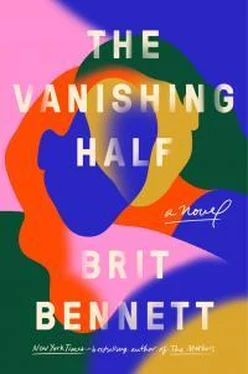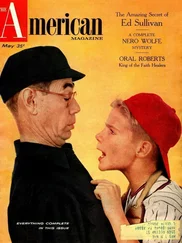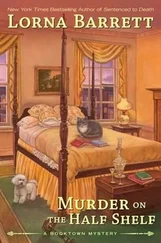Roberta snorted. “Of course there is,” she said. “This ain’t that down poke town you come from.”
Roberta had never heard of Mallard. Nobody outside of St. Landry Parish had, and when Desiree told Sam, he struggled to even imagine it.
“You’re jivin,” he said. “A whole town of folks as light as you?”
He’d invited her to lunch one afternoon, leaning over her cubicle after he’d stopped by to ask about a set of fingerprints. Later, he told her that he hadn’t been so desperate about those prints at all, he’d just wanted to find a reason to introduce himself. Now they were sitting in the National Arboretum, watching ducks glide over the pond.
“Lighter even,” she said, thinking about Mrs. Fontenot, who’d always boasted that her children were the color of clabber.
Sam laughed. “Well, you gotta bring me down there sometime,” he said. “I gotta see this light-skinned city for myself.”
But he was only flirting. He was born in Ohio and had never ventured south of Virginia. His mother had wanted to send him to Morehouse but no, he was a Buckeye back before all the dormitories desegregated. He’d sat in classrooms where white professors refused to answer his questions. He’d scraped piss-yellow snow off his windshield each winter. Dated light girls who would not hold his hand in public. Northern racism, he knew. That southern kind, you could keep. As far as he was concerned, his folks had escaped the South for a reason and who was he to question their judgment? Those rednecks probably wouldn’t even let him come home, he always joked. He might go down to visit and wind up chopping cotton.
“You wouldn’t like Mallard,” she told him.
“Why not?”
“Because. They funny down there. Colorstruck. That’s why I left.”
Not exactly, although she wanted him to believe that she was nothing like the place she’d come from. She wanted him to believe anything beside the truth: that she was only young and bored and she’d dragged her sister to a city where she’d lost herself. He was quiet a minute, considering this, then he tilted the bag of breadcrumbs toward her. He had been ripping up the crust of his sandwich so she could feed the ducks, the type of subtle gallantry she would learn to love about him. She smiled, dipping her hand inside.
She told him that she had never been with a man like him before, but the truth was, she had never really been with a man at all. So she was surprised and delighted by every little thing he did: Sam escorting her into restaurants with white tablecloths and ornate silverware; Sam inviting her to the theater, surprising her with tickets to see Ella Fitzgerald. When he brought her home the first time, she’d wandered around his bachelor’s apartment, amazed by his neat linens, his color-coded wardrobe, his big spacious bed. She’d nearly cried when she’d returned to Roberta’s basement after that.
He would never again offer to visit home with her. She would never ask him to. She’d told him in the beginning that she hated Mallard.
“I don’t believe you,” he said. They were lying in his bed, listening to the rain.
“What’s there to believe? I told you how I feel.”
“Negroes always love our hometowns,” he said. “Even though we’re always from the worst places. Only white folks got the freedom to hate home.”
He was raised in the projects of Cleveland and he loved that city with the fierceness of someone who hadn’t been given much to love. She’d only been given a town she’d always wanted to escape and a mother who’d made it clear that she was not welcomed back. She hadn’t told Sam about Stella yet—it seemed like another thing about Mallard that he wouldn’t understand. But as rain splattered against the metal fire escape, she turned toward him and said that she had a twin sister who’d decided to become someone else.
“She’ll get tired of all that playacting,” he said. “Bet she comes running back, feeling foolish. You’re way too sweet for anyone to stay away.”
He kissed her forehead, and she held him tighter, his heart thumping against her ear. This was back in the beginning. Before his hands curled into fists, before he called her uppity yellow bitch or crazy as your sister or off thinkin you white . Back when she’d found herself starting to trust him.
—
MANY YEARS LATER, when her eyesight would begin to fade, she would blame the years she’d spent squinting at sheets of fingerprints and marking their ridges. Roberta told her once that soon the entire fingerprinting system would be operated by machines. The Japanese were already testing out the technology. But how could a machine study a fingerprint better than the trained eye? Desiree saw patterns that most people couldn’t. She could read a person’s life off his fingertips. During training, she’d practiced reading her own fingerprints, those intricate designs that marked her as unique. Stella had a scar on her left index finger from when she’d cut herself with a knife, one of many ways that their fingerprints were different.
Sometimes who you were came down to the small things.
—
ADELE VIGNES LIVED in a white shotgun house that lurked on the edge of the woods, a house first built by the founder and inhabited by generations of Decuirs ever since. When she’d first married, her new husband, Leon Vignes, had wandered down the hall, inspecting the ancient furniture. He was a repairman who wanted to be a woodworker and he ran a finger along the slender table legs, admiring the craftsmanship. He’d never expected to one day live in a home imbued with so much history, but then again, he’d never expected to marry a Decuir girl. A girl with Heritage. He could trace his own family to a long line of French winegrowers who’d hoped to build a vineyard in the New World before discovering that Louisiana was too hot and humid for grapes and settled instead for sugarcane. Big thinking crushed by reality—that’s what he’d inherited. His own parents had set their sights more reasonably; they’d run a speakeasy on the edge of Mallard called the Surly Goat. The more pious in Mallard would later trace the tragedies to that sinful business: four Vignes brothers, none of whom lived past thirty. Leon, the runt of the litter, the first to die.
The house had faded with time but, somehow, still seemed exactly as Desiree had remembered it. She stepped into the clearing, gripping her own daughter tighter, shoulders stinging with each step. Those brass columns, teal roof, the narrow front porch where her mother was sitting on a rocking chair, snapping green beans into a bowl of water. Her mother still slight, her hair trailing down her back, temples now tinted gray. Desiree paused, her daughter hanging heavy from her neck. The years pushing her back like a hand to her chest.
“Wonderin when y’all would make it out here. You know Lou already called, sayin he seen you.” Her mother was talking to her but staring at the child in her arms. “Mighty big to be carried.”
Desiree finally set her daughter down. Her back ached, but pain, at least, felt familiar. A hurting body kept you alert, awake, which was better than how numb she’d felt on the train, moving but trapped in place. She nudged her daughter forward.
“Go give your Maman a kiss,” she said. “Go on, it’s all right.”
Her daughter clamped around her legs, too shy to move, but she nudged her again until the girl dutifully climbed the steps, hesitating a second before she put an arm around her grandmother. Adele pulled back to get a better look at her, touching her mussed braids.
“Go take a bath,” she said. “Y’all smell like outside.”
In the bathroom, Desiree knelt on the cracked tile to run her daughter a bath in the clawfoot tub. She tested the water feeling, somehow, as if she were dreaming. The mirror blackened in the top corner, the chipped scalloped sink, the wooden floors creaking in the places she’d learned to avoid if she wanted to sneak in past curfew. Her mother snapping green beans on the porch, as if it were a normal morning. And yet, they hadn’t spoken since Stella left. Desiree had called home, gulping back tears, and her mother said, “You did this.” What could she even say? She was the one who’d pushed Stella to leave home in the first place. Now her sister had decided she’d rather be white and her mother blamed her because Stella was no longer there to blame.
Читать дальше












